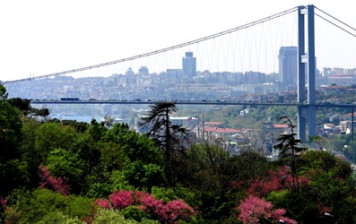
Graham E. Fuller
…. political differences have emerged between the powerful forces of Hizmet and the AKP on certain specific issues. Gülen was publicly critical of Prime Minister Erdoğan’s 2010 confrontation with Israel when the prime minister supported an unarmed international humanitarian flotilla to sail from Turkey to Gaza—carrying humanitarian supplies and clearly designed to challenge, even break, the illegal Israeli blockade against the Palestinian population of Gaza and score an ideological victory. Israeli forces attacked the lead Turkish vessel, the Mavi Marmara, on the high seas and killed 11 unarmed Turks on board. Gülen criticized the operation as adventurist, risking negative reaction from the US and further damaging relations with Israel. Gülen is known to favor better relations with Israel, primarily on two grounds: a long-term desire to promote tolerance and dialog with Jews in general, and awareness of Israel’s ability to negatively influence US policies towards Turkey. Gülen instinctively avoids support of radical approaches on political issues. He also opposes state violence against the Kurds of Turkey—among whom he enjoys considerable following—even in response to PKK violence.
Gülen’s cultural outlook, furthermore, emerges from a basic Sunni orientation. While he strongly advocates tolerance, he also displays some ambivalence towards the force of Persian nationalism which is often cloaked in a Shi’ite framework. He was understandably uncomfortable with the often extremist and confrontationalist views expressed by the former Iranian president Ahmadinejad which he believed were dangerously provocative towards the West and to the overall detriment of the image of Islam. His ambivalence towards Persian culture may also be rooted in the distrust that the Ottoman state felt towards Iran for many centuries when Istanbul was the seat of Sunni Islam and Iran the seat of Shi’ism. Gülen believes that Davutoğlu has been too trusting and naive in seeking rapprochement with Iran and has run risks of angering Washington in its campaign against Iran on nuclear and human rights issues. Gülen is not, however, a sectarian and is not hostile to Shi’ism as such. With the election of a far more accommodating President Rouhani in Iran in 2013 Gülen is likely to breathe more easily.
Indeed, Gülen’s principles of dialog share much in common with the general principles propagated by Davutoğlu and the AKP—except on Syria and Israel.
Yet, as dramatic as the new principles and approaches of Turkish foreign policy have been, we will see how the emergence of the Arab Spring in 2010 imposed new and entirely unanticipated problems of exceptional complexity upon the AKP. Ankara reacted with uncertainty, inconsistency, occasional tactical confusion and on occasion poor judgment within what was once a fairly coherent sense of foreign policy principles.
Source:
Excerpt From: Graham E. Fuller. “Turkey and the Arab Spring: Leadership in the Middle East.” Bozorg Press. 2014. Chapter 10.
Tags: Iran | Israel | Peacebuilding |Related Articles

The Gulen Movement: A Shared Bridge between the U.S. and Islam
Peter J. Mehl “Life is a shared bridge of “passing over” and “coming back.” It is a passing over to other cultures and faiths, not to disown one’s…

Differences Should Not Lead to Separation
Dr. Saribay: Fethullah Gulen clearly shows that Islam can have different interpretations. In the coming days, there is going to be a settling of accounts between populist and…

Fethullah Gulen: A Bridge Between Islam and the West
Fethullah Gülen thinks of globalization in more than economic and ideological terms. For him globalization is a more encompassing term. It refers to connectivity and interdependence in all…
